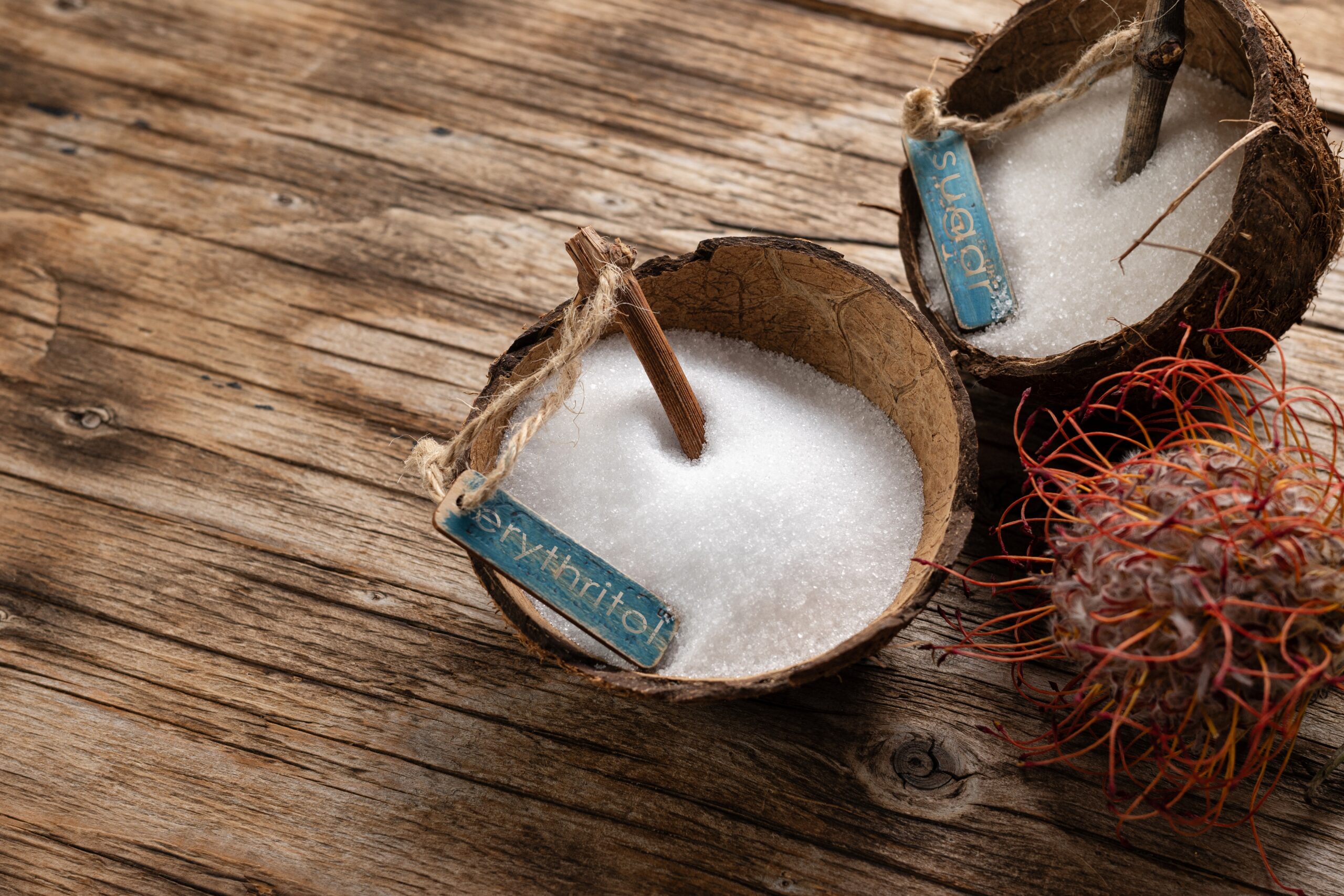Table of Contents

Spooning that pink packet of sweetness into your morning coffee may seem a savvy swap for sugar, but groundbreaking research reveals this innocuous-looking white powder packs a serious clotting risk.
A Bitter Pill to Swallow
Long touted as a safe, zero-calorie solution for satisfying sweet cravings, erythritol is ubiquitous in "diet" foods, drinks, and even medications. Found in favorites like Truvia and Splenda, its use has skyrocketed as health-conscious consumers clamor for guilt-free indulgences.
But a shocking new study unveils erythritol's dark side ― a potent propensity to promote blood clots. In a first-of-its-kind human trial, just a single 30 gram dose of erythritol dramatically enhanced platelet reactivity and thrombosis potential. For comparison, an equal amount of glucose didn't budge clotting markers.
The Anatomy of a Clot
To grasp erythritol's dangers, we must venture inside arteries. When platelets encounter a damaged vessel wall, they spring into action, sticking together to plug the breach. Helpful for staunching cuts, but in diseased arteries, this process can spawn deadly clots.
Erythritol appears to both sensitize platelets to activation and amp up their release of clot-promoting molecules serotonin and CXCL4. By rendering these tiny cells hyperreactive, erythritol sets the stage for impromptu internal blockages.
Connecting the Dots
This revelation jibes with recent population studies linking higher blood erythritol levels to heightened heart attack and stroke risk. Researchers speculate the sweetener's concentrated presence in processed foods favored by unhealthy individuals may compound its independent harms.
Plus, erythritol's antioxidant properties, once celebrated, may actually thwart our natural clot-busting defenses. By gobbling up artery-clearing free radicals, erythritol may preserve platelets' misguided mission.
From Obscurity to Scrutiny
Despite decades of prominence, erythritol has largely evaded rigorous safety studies due to its "natural" origins in fruits and fermented foods. Regulatory agencies were quick to grant "Generally Recognized as Safe" (GRAS) status, but this new data demands a serious second look.
The same properties that spare erythritol from spiking blood sugar ― resistance to metabolism and rapid absorption ― may enable its potent platelet effects at astonishingly low doses. A few grams of this under-the-radar powder could be secretly stoking cardiovascular calamity.
Beyond the Sweetener Aisle
Erythritol's reach extends beyond desserts and diet sodas. You'll find it in electrolyte powders, chewable supplements, and even aspirin-like heart-health pills. As science evolves, even seemingly unrelated products warrant ingredient inspection.
Of course, eliminating erythritol doesn't eliminate thrombosis risk. Quitting smoking, controlling blood pressure, optimizing cholesterol, and cultivating a robustly anti-inflammatory lifestyle remain top defenses. But shunning this insidious additive could be a simple, high-yield intervention.
Forging a Safer Path Forward
These findings sound a clear call for further inquiry before we continue sprinkling erythritol with abandon. The FDA and European regulators must reevaluate its GRAS status in light of emerging evidence. Manufacturers should explore alternative formulations and transparently label erythritol content.
Ultimately, the onus falls on individuals to scrutinize sweeteners and opt for whole-food fare whenever possible. In a world of ultra-processed eats, a healthy dose of dietary discernment may be the ultimate medicine ― perhaps one best washed down with an erythritol-free beverage.
AD
Most Recent
AD
